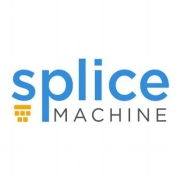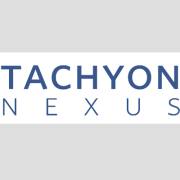Hadoop is an open-source framework that enables the processing of large datasets across distributed computing environments, scalable for both storage and data analytics, making it ideal for big data solutions.
To learn more, read our
Hadoop Buyer's Guide (Updated: September 2025).
The top 5 Hadoop solutions are Cloudera Distribution for Hadoop, Apache Spark, Amazon EMR, HPE Ezmeral Data Fabric and Spark SQL, as ranked by PeerSpot users in September 2025. Apache Spark received the highest rating of 8.8 among the leaders and is the most popular solution in terms of searches by peers, and Cloudera Distribution for Hadoop holds the largest mind share of 21.9%.
Created by Apache, Hadoop facilitates the handling of large data volumes by distributing data across clusters of computers using simple programming models. Renowned for its scalability and storage flexibility, it allows organizations to harness more data to improve efficiency, strategy, and decision-making.
What are the critical features of Hadoop?
- Scalable Storage: Hadoop provides storage scaling, allowing users to add more nodes and handle increased data effortlessly.
- Flexible Data Processing: It supports multiple data formats such as structured, semi-structured, and unstructured data, ensuring adaptability.
- Parallel Processing: Its MapReduce programming model enables parallel processing, ensuring faster data handling and improved performance.
- Cost-Efficiency: Utilizes commodity hardware, reducing the cost for data storage and processing.
- Open-Source: Being open-source, Hadoop can be customized to fit specific organizational needs, enhancing functionality.
What benefits or ROI should users look for when evaluating Hadoop?
- Enhanced Analytics: Ability to analyze vast amounts of data improves insights and strategic decision-making.
- Operational Efficiency: Automating data processes reduces manual workload and increases productivity.
- Scalability: Growth adaptability ensures seamless handling of increasing data volumes.
- Cost Savings: Reduces hardware and processing costs through use of commodity hardware.
- Customization: Customizable nature allows organizations to tailor the framework to specific business requirements.
In finance, Hadoop is used for analyzing transactional and market data to detect fraud and assess risks. Healthcare organizations utilize it for processing immense amounts of patient data for better diagnostics and personalized treatment plans. Retail companies use it for analyzing consumer behavior to optimize marketing strategies and inventory management.
Hadoop is helpful for organizations looking to handle large data volumes efficiently. It offers the ability to store and process massive amounts of data across distributed systems, making it a practical solution for big data analytics and improving overall business insights.























